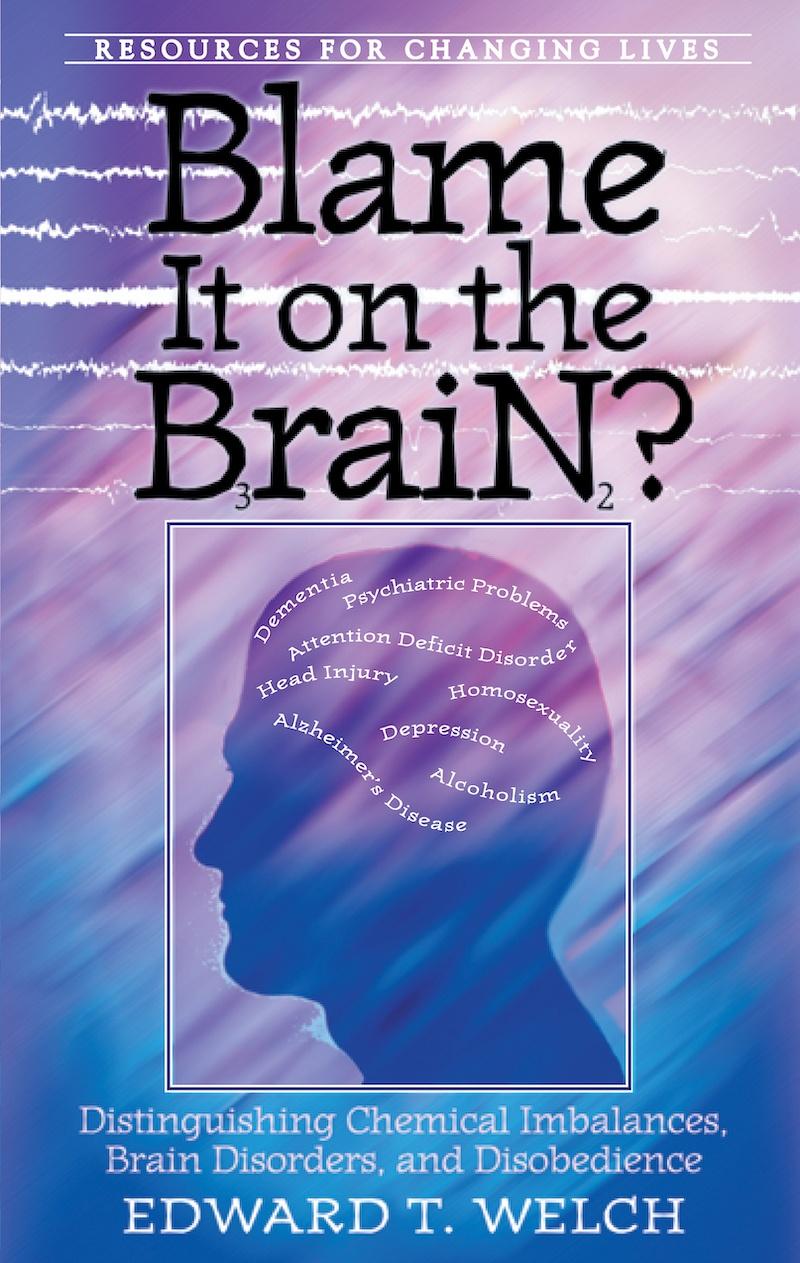Christian Counseling & Educational Foundation
1803 East Willow Grove Avenue
Glenside, PA 19038

Written byEd Welch
Check out the second edition of this book, released in 2024, here.
Have you ever been surprised at how some people have accused their brain, making it responsible for some of their bad behavior? As human problems seem to get both deeper and more widespread, people are desperate for solutions—and the quicker the better! How wonderful it would be, many think, if the right pill or genetic alteration could solve our problems! As Christians, we are not so naive, however. We know that we cannot blindly accept everything we hear as God’s truth. Information we receive about brain functioning is viewed the same way we view any information, whether it is about finances, parenting, or the causes of our behavior: we view it through the lens of Scripture. And that requires us to be thoughtful, careful, and prayerful as we hear and assess the latest scientific discoveries.
The purpose of this book is twofold: to introduce areas where the brain has received too little credit and to highlight where the brain has received too much credit (or blame). Such hope is encouraged by reports suggesting that we are on the verge of revolutionary brain treatments for problems that were once attributed to the soul.
The theological structure presented in Part One is fairly straightforward: we are created by God as a unity of at least two substances—spirit and body. Nothing new here. This is a theological statement that has stood for centuries. What is new, however, is the application of this theology to some modern question. To help the reader think through these issues and questions, Part One of this book supplies the theological resources necessary for dialogue with the brain sciences. Why theological resources rather than technological and scientific? Because theology is the lens through which Christians interpret all research, and it is essential that our lens be clear and accurate. Sadly, in relation to the brain sciences, our lenses have been particularly cloudy, and, as a result, they have not controlled our vision. In fact, many people seem to take their biblical lenses off entirely when looking at brain research. Therefore, Part One will clean and polish the reader's theological glasses.
Outfitted with this theology and its manifold applications, Part Two will put it to work. Part Two explores some modern diagnoses and experiences, all attributed to the brain, and considers them from a biblical perspective. Ed thoughtfully challenges readers to think biblically about specific problems as they are encountered. This, in turn, helps to equip and enable readers to minister biblically, with confidence, wisdom, and compassion.
206 pages
Publisher: P&R Publishing
Publication Year: 1998
Part One: Biblical Foundations
Chapter 1 - Who's in Charge?
Chapter 2 - Mind-Body: Questions and Answers
Chapter 3 - Mind-Body: Practical Applications
Part Two: Brain Problems Seen Through the Lens of Scripture
Chapter 4 - Alzheimer's Disease and Dementia
Chapter 5 - Head Injury
Maybe the Brain Did It: Psychiatric Problems
Chapter 6 - An Introduction to Psychiatric Problems
Chapter 7 - Depression
Chapter 8 - Attention Deficit Disorder
The Brain Didn't Do It: New Trends in the Brain Sciences
Chapter 9 - Homosexuality
Chapter 10 - Alcoholism
Chapter 11 - Final Thoughts